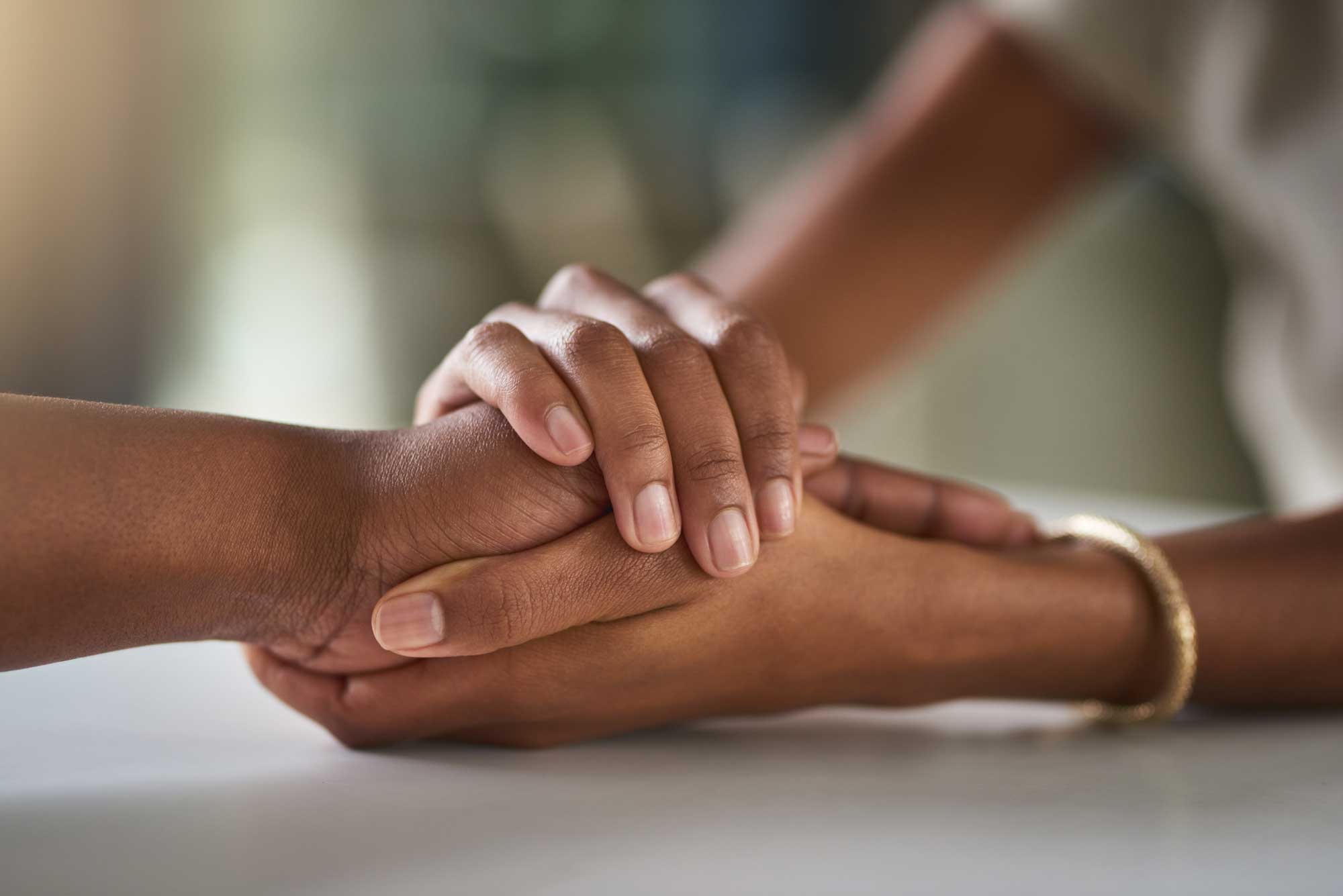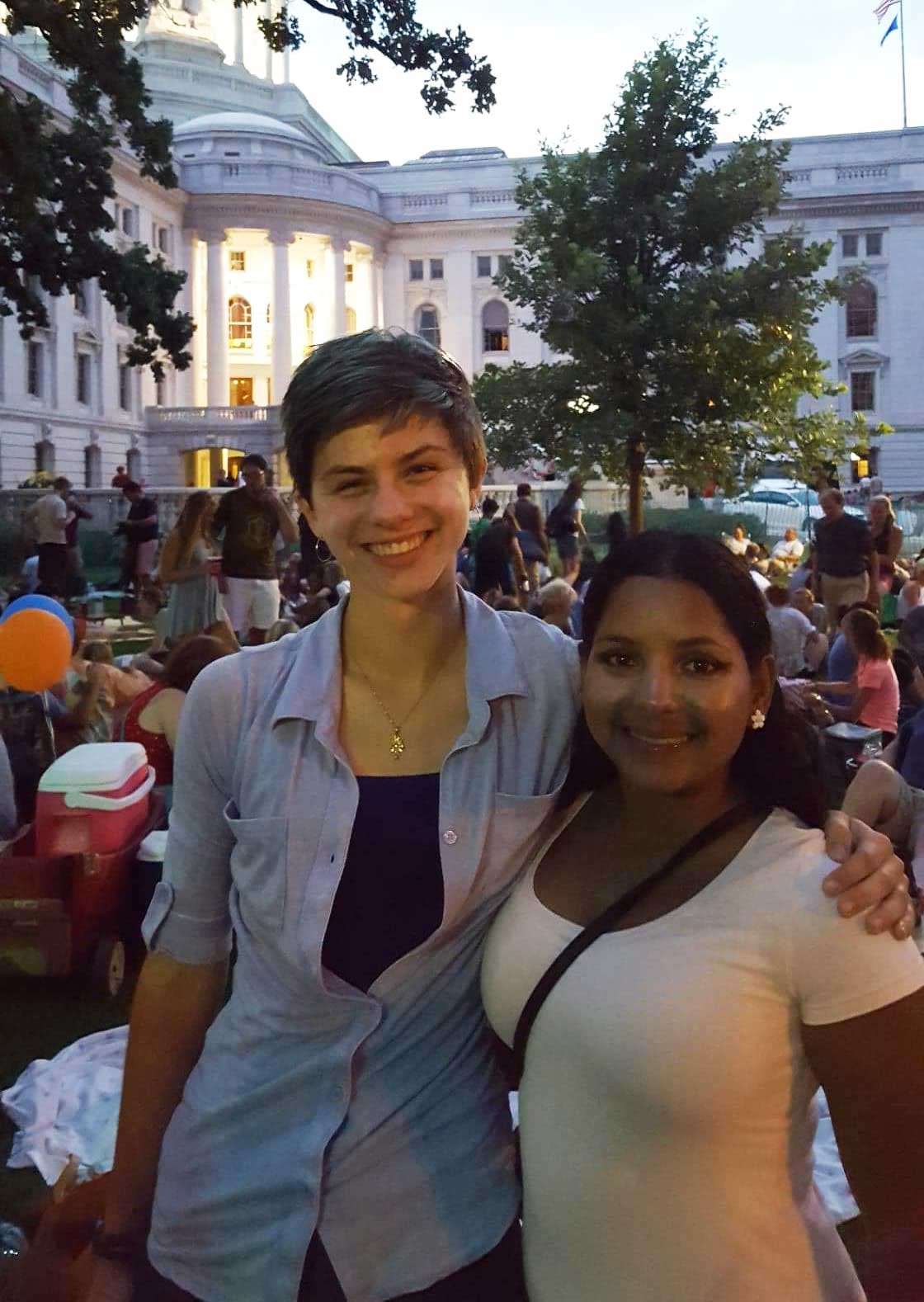
Two sisters, mother, godmother share bonding experience of behavioral health grief course
For the Willihnganzs and a longtime friend, helping professions are a family affair.
Melodie Willihnganz is a doctor of audiology. Her daughter Molly Willihnganz is in a master’s program for marriage and family therapy, while her daughter Sophie Willihnganz, a recent college graduate, is pursuing a career in physical therapy. Molly and Sophie’s godmother—and Melodie’s lifelong friend—Sharon Klawitter has worked in social work, workplace training, human resource management, and organization development.

It’s no wonder this service-oriented foursome was drawn to take the online Grief Support Specialist Certificate program in 2017.
“I’ve always been interested in helping others and aiding them in navigating life; grief represented a significant aspect of that process,” Molly says. “As a family, we do discuss tough issues and grief is certainly one of them. I believe this course provided us all with tools for immediate use and for the future.”
The Grief Support Specialist Certificate shares knowledge and skills to enhance or create a professional specialty that focuses on counseling people who have suffered from a major loss, whether the result of death, divorce, unemployment, destruction due to drug abuse, or any traumatic personal devastation. The program is offered online and in-person. The next class on campus will be at the Pyle Center Thursday through Sunday, October 24-27, and Saturday, December 7.
Supportive cohort, excellent instruction
Melodie first learned about the course and encouraged her daughters and Sharon to take it.
“I felt the program could advance my understanding of grief, not only as it pertains to loss of a loved one but also other types of grief and loss such as loss of function or loss of a relationship,” Melodie says. “In my enthusiasm, I mentioned it to Molly and Sophie because they were in college majoring in psychology and later to Sharon. Molly and I took the course together, which was a real joy as I got to know her not only as my daughter, but as a peer.”
As humans do, all four women have grieved. Sharon, for example, shared her grief associated with a cancer diagnosis and loss of a family member to suicide.

“Every person has had the experience of grief,” Molly says. “This universal tendency made it easy to connect with those in this class and share in a unique way. It demonstrated that we are not alone.”
The women all agreed that both the instructors and their fellow students made for a rich educational experience—through lectures, assignments, and group work. They particularly praised lead instructor Doug Smith for sharing his vast knowledge and personal experiences.
“This course was incredible,” says Sophie. “I think it has a really unique premise, and it created a very genuine and supportive atmosphere.”
Melodie adds, “The instructors were nothing but excellent, well-informed, and invested in our learning. My fellow students came from all walks of life, ages, and experiences. Their openness and willingness to share intensely personal stories and feelings, combined with trust in each other, greatly enhanced my learning.”
Implementing knowledge in their careers
“While we are all interested in different areas of specialty, each of us has a commitment to helping others,” says Melodie, who’s worked with patients navigating loss of hearing.
After getting the grief certificate, Melodie participated in other Continuing Studies courses, including Forgiveness: A Pathway to Emotional Healing and the End-of-Life Palliative Care Counseling Certificate. Molly has also taken the forgiveness course, offered both online and in-person. And she plans to take Mediation Skills: 40-Hour Basic Training.
“The grief course has helped me grow my professional career as I have an interest in incorporating grief work into my role as a marriage and family therapist,” Molly says. “With the systemic perspective attached, I am curious to develop relationships and therapeutic interventions within this specialized niche.”
Sophie plans to use her new knowledge of grief with her work blending the emotional and physical benefits of green spaces with physical therapy and helping patients to work through rehabilitation and grief simultaneously.
And it’s highly likely these four will continue sharing their personal and professional connections to the class.
“As a family, we have always been very open in discussing important issues,” Molly says. “No one enjoys talking about challenging times; often our society stigmatizes them. The more conversation is facilitated, however, the greater the amount of empathy and understanding we as a society can have for each other.”
For more information on the online and in-person Grief Support Specialist Certificate, contact Barbara Nehls-Lowe at [email protected] or 608-890-4653.
Published on Oct 09 2019
Last Updated on Jul 10 2024
Categories: Continuing education, Student stories
Previous Post
How to recover from a job interview blunder



